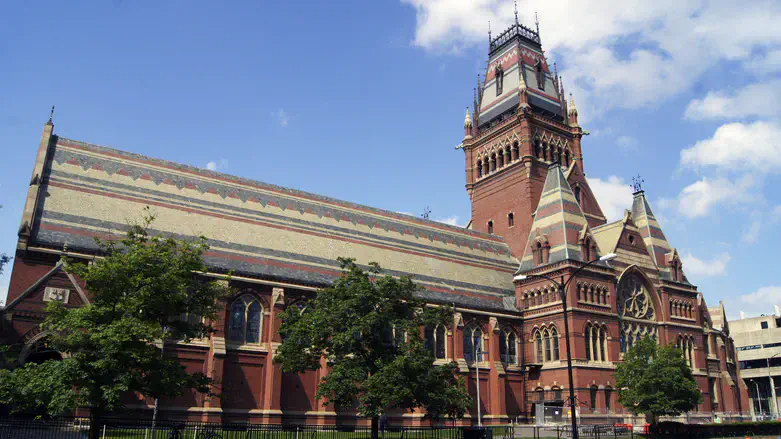
Harvard University on Tuesday released two major reports detailing a deeply troubling climate of antisemitism and anti-Israel sentiment on its campus.
Compiled by twin task forces charged with addressing bias against Jewish, Israeli, Muslim, Arab, and Palestinian affiliates, the reports expose a fractured academic environment where Jewish students increasingly feel marginalized, threatened, and silenced, according to The Harvard Crimson.
The task forces, convened by President Alan Garber in early 2024 in the wake of Hamas’ October 7 attack on Israel and the war in Gaza, conducted surveys and listening sessions involving thousands of students, staff, and faculty.
Their findings reveal a campus culture marked by fear, polarization, and growing intolerance — particularly toward Jewish and Israeli voices.
Among the most alarming findings: over a quarter of Jewish students reported feeling physically unsafe at Harvard, and 61 percent said they feared professional or academic consequences for expressing their views — a fear heightened by what the task force labeled a shift toward increasingly aggressive, uncompromising pro-Palestinian activism.
“Some students reported being pushed by their peers to the periphery of campus life because of who they are or what they believe,” wrote Garber in a statement accompanying the reports. He called the testimonies “searing” and issued a formal apology to those the University had let down.
The antisemitism-focused report attributed the deteriorating climate to the radicalization of campus discourse around the Israel-Palestinian Arab conflict and the proliferation of “politicized instruction.”
It cited several courses at Harvard’s Graduate School of Education and School of Public Health that allegedly presented one-sided, factually questionable narratives about Israel, sometimes minimizing Jewish historical claims or casting Israeli Jews as colonial occupiers.
The report also highlighted an incident in which a Jewish student was barred from speaking at a conference about Holocaust survivors — an event allegedly dismissed by organizers as “not tasteful,” despite lacking any political content. Another case involved a panelist appearing to ignore a student’s question after recognizing their Jewish first name.
Task force members flagged numerous course materials that they said advanced antisemitic stereotypes or falsely portrayed Israeli military actions. In some cases, these materials were later quietly removed from syllabi.
The report also criticized the University’s failure to adequately supervise programs that disseminate biased content, recommending that schools face consequences for failing to uphold academic integrity and viewpoint diversity. It called for instructors to be evaluated not only on scholarly merit but on their demonstrated ability to foster inclusive, pluralistic classrooms.
“Too often, Jewish students found themselves socially isolated and accused of supporting genocide simply because of their nationality,” the report noted, urging reforms to the admissions process that would prioritize candidates capable of respectfully engaging across political and cultural divides.
Among its dozens of recommendations, the antisemitism task force called for the creation of a dedicated academic center focused on Jewish history and antisemitism, new faculty hires through a “cluster hire” model, and the prohibition of masks at protests to discourage intimidation.
Meanwhile, a parallel report addressing anti-Muslim and anti-Palestinian Arab bias pointed to incidents of doxxing, harassment, and verbal abuse targeting students associated with pro-Palestinian Arab causes.
The reports come as Harvard faces continued scrutiny over its handling of antisemitism on campus.
The federal government announced recently that it would freeze $2.2 billion in funding to Harvard due to its failure to fight campus antisemitism.
That move came after Garber stated that Harvard would not comply with the administration’s directives.
Subsequent reports indicated that the Trump administration is preparing to freeze another billion dollars in federal funding for Harvard University because the administration was angered by Harvard's decision to publish a letter listing the government's demands, as the contents of the letter were supposed to be kept private.
Harvard then filed a lawsuit in response to the administration’s funding freeze.
